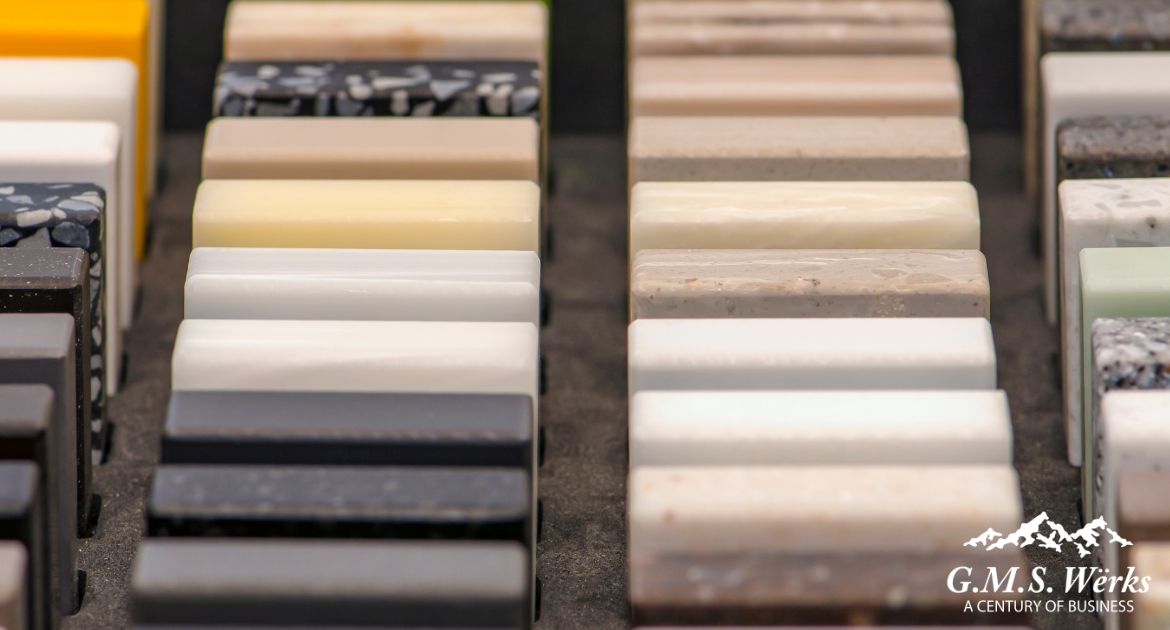-
4225 Florence Blvd
-
Appointments Recommended
Mon - Fri: 8:00am - 4:00pm
-
Schedule Your Appointment:
(402) 451-3400 - Request Quote
Mon - Fri: 8:00am - 4:00pm

Once you choose the perfect stone for your home, you’ll need to decide on the finish. When it comes to natural stone finishes, the choice between honed vs polished marble is a crucial decision. Each finish not only affects the stone's appearance but also its maintenance and suitability for different applications. So how do you decide? Let’s delve into the characteristics of honed vs polished marble finishes to help you make an informed decision!
A polished finish is smooth, shiny and glossy. It creates a high-end and luxurious feel. Polished finishes are ideal for powder rooms, countertops, walls and fireplaces. It’s the most popular finish for stones like marble and granite. The look is achieved by grinding the surface of the stone with progressively finer abrasives until it takes on a shiny, reflective appearance.
Polishing natural stone actually creates a barrier that helps protect the stone from stains. One of the best features of a polished finish is the enhanced colors and features; polishing brings out the stone’s natural colors and patterns. It can make the stone look more vibrant and rich.
Another perk is stain resistance; the polishing process closes the stone’s natural pores, which makes it less absorbent and more stain-resistant. A polished surface is also easy to clean; the smooth surface is easier to wipe down. Polished finishes require less re-sealing than honed finishes do.
You’ll need to be aware that polished stone is slippery when wet; this can be a disadvantage in bathrooms and other areas with lots of water exposure. Scratches and etches are also more visible on polished surfaces due to the reflective properties, particularly on softer stones like marble.
Spills on polished marble should be wiped up immediately to avoid any damage. Avoid using harsh products and abrasive materials on polished surfaces. Strong cleaners or rough brushing can damage the finish.
A honed finish has a satin-like feel that is velvety and smooth to the touch. A honed finish is achieved by stopping the grinding process sooner, which leaves the stone with a more natural, matte appearance. This is common for limestone, travertine, marble and granite.
A honed finish is less slippery, making it ideal for areas exposed to water. The matte finish is more forgiving and doesn’t show scratches and etches as easily. It also offers a subtle and contemporary look; a honed finish can give a more modern aesthetic compared to the high gloss of polished stone.
Besides hiding scratches better than polished stone, honed finishes are also a lot less slippery than polished stone when wet, making them a safer option for floors. A honed finish is suggested for use in high-traffic areas such as bathroom floors, living area floors, foyer floors and countertops.
A honed finish is more prone to staining and requires more maintenance. Since the pores of the stone are more open, it can be more susceptible to staining. A honed surface may also require more frequent sealing to keep it protected. Honed finishes do not have the natural barrier that polished stone does, so they will absorb liquids more quickly and easily.
Honed finishes do require more frequent re-sealing than polished finishes do. It is important to note that regardless of the finish you chose, you should always ensure that the surface is cleaned thoroughly prior to re-sealing.
It is critical to wipe up spills right away. Don’t use regular soap to clean honed marble because it will get absorbed and affect the color of the stone. Using a mildly abrasive detergent with bleach is appropriate for cleaning.
The decision between polished and honed finishes should be based on the intended use of the stone and your own personal preference. Now that you know the differences between honed vs polished marble, feel free to stop by our location to check out natural stone materials for yourself!
Our showroom is open Monday through Thursday from 8:00 a.m. to 5:00 p.m. and Friday from 8:00 a.m. to 4:00 p.m. Contact us by phone during our normal business hours at 402-451-3400 or email us!